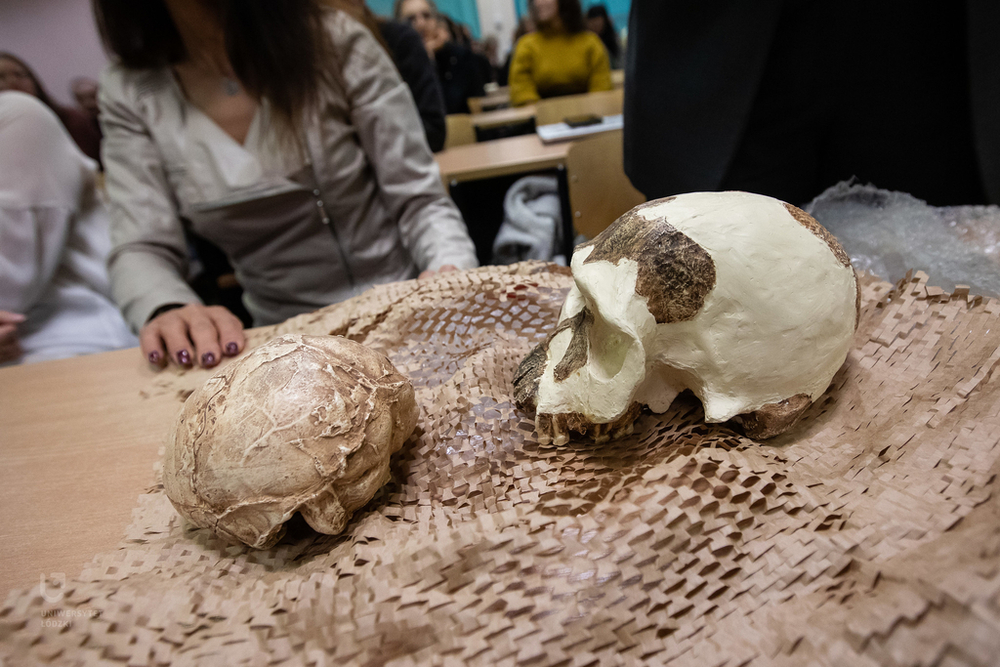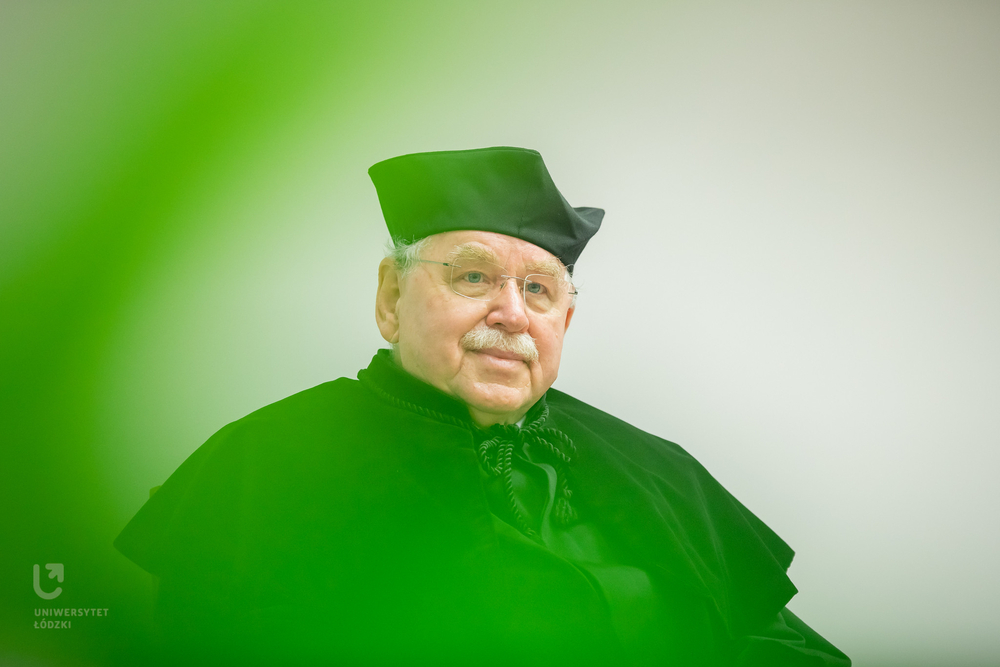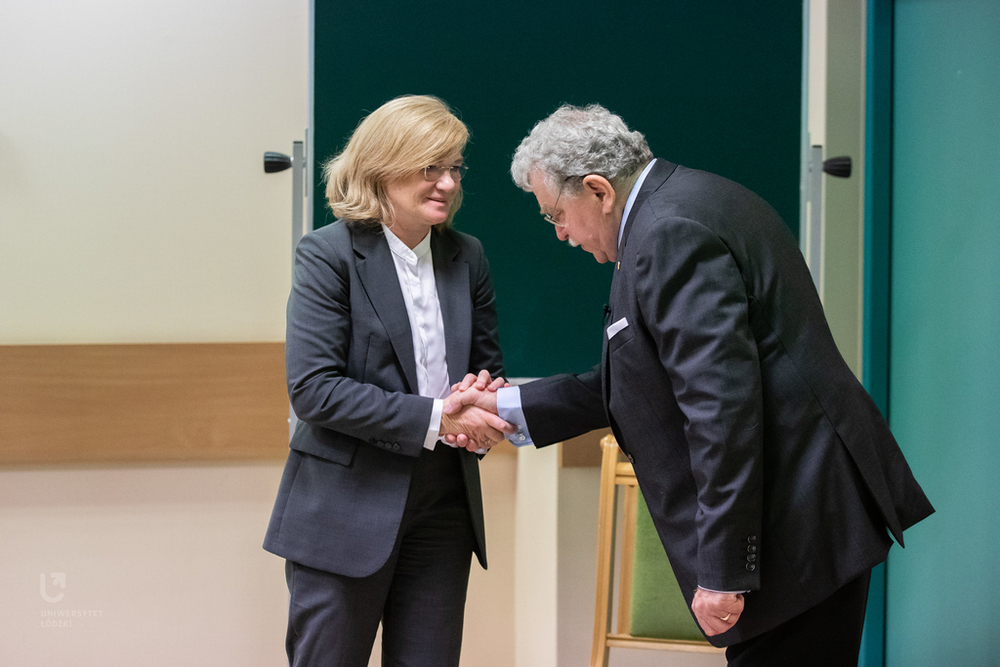To understand the world in its variability and complexity
The world is complex. It takes a very long time to learn everything about it. Therefore, in science in particular, the so-called Occam's razor, the principle of simplifying abstraction, has been used for years. This principle works very well in the technical sciences. Most technology is based on the fact that researchers who introduced e.g. physical principles, abstracted from less important phenomena and focused on what was most important. In biology, this does not work. We are biological systems and everything that happens in the system influences one another. This is why many people try to understand the world as something stable. However, the world is not stable. And that scares us a bit
– Prof. Maciej Henneberg, DHC of the University of Lodz.
Human evolution is a process, it is not jumping from one species to another, but a continuous process. It is a fact. The fact is that fossil finds dating back 7 million years are difficult to question and current research on nucleic acids also documents our relationship with animals.
Prof. Hennenberg sought to convey this relationship and the evidence for human evolution, in the light of his own research, during an hour-long talk, a transcript of which is attached to this text. The lecture concluded with an important moment of handing over copies of some of the finds mentioned in the Professor's lecture to Professor Elżbieta Żądzińska, Rector of the University of Lodz. The skulls copies were made during Prof Henneberg's research stay at the University of Johannesburg. The donated materials have now been added to the resources of the Department of Anthropology of the Faculty of Biology and Environmental Protection at the University of Lodz and are being used by students.
On this occasion, Prof. Maciej Henneberg's extensive, long-standing cooperation with the scientific team of the Department of Anthropology of the Faculty of Biology and Environmental Protection at the University of Lodz, headed by Prof. Elżbieta Żądzińska should be mentioned. The cooperation includes internships of the University of Lodz researchers at the University of Adelaide and internships of doctoral students of the same university at the University of Lodz. Academic exchanges result in joint research and publications in prestigious scientific journals in biology and medicine.

Copies of skulls donated to the Department of Anthropology of the University of Lodz
Prof. Maciej Henneberg – remarkable life story
Prof. Maciej Henneberg was born in Poznań in 1949 to a family with strong patriotic traditions, committed to the fight for freedom. His father was Wacław Henneberg, who served in the 8th Army commanded by Montgomery during World War II, and his uncle Major Zdzisław Karol Henneberg was a commander of the 303rd Squadron. His parents died early and he took his delayed "matura" exam only at a working secondary school.
Maciej Henneberg's house, in his own memories, was a haven of free thought and science. He learnt at an early age what Katyn was to the Poles, read a lot, learned foreign languages at home under the guidance of relatives. Not surprisingly, years later, he chose the scientific path himself. He completed his studies in Biology at the Adam Mickiewicz University in Poznań, where he also obtained his PhD degree.
He became involved in the Solidarity trade union movement and quickly became head of the union at the university. On 13 December 1981, Prof. Henneberg was interned as one of the first ten to be interned in Poznań and was imprisoned without trial for 100 days In prison, his health deteriorated and he got transferred to hospital and later released home. The Henneberg couple was then subjected to severe repression and persistent harassment by the Security Service of the Polish People's Republic; For this reason, they decided to leave Poland in 1984 and live in exile.
Prof. Maciej Henneberg, in exile, thanks to his knowledge of English and previous scientific exchange with research institutions in countries outside the Iron Curtain, fell into the vortex of scientific life from the very beginning. He has worked at universities in Germany, the USA, South Africa, Switzerland, Indonesia, England (University of Oxford), Italy (funded by the National Geographic Society) and Australia. He currently lives and works in Australia.

Prof. Maciej Henneberg, DHC of the University of Lodz
Walk your own path in science
Prof. Maciej Henneberg's scientific interests include: human evolution and microevolution, human brain evolution, biocultural evolution, human ecology, population genetics, palaeodemography, historical demography, palaeopathology, auxology, anatomy, comparative anatomy, ergonomics, archaeology and medical-forensic issues.
He is probably best known for his work, which he co-authored, on homo FLORESIENSIS – called "Hobbit man", in fact homo sapiens with Down syndrome, which coincided with the "Lord of the Rings" trilogy (2004) and resonated in the world not only of science, but also in popular science and even entertainment discourse.
For many years, he has also provided his expert knowledge in the field of forensic anthropology, giving opinions in criminal and civil proceedings conducted by courts in Poland, the USA, South Africa and Australia.
He is not afraid to follow his own path in science and announce research results that are not always in line with popular views or scientific discourse. In 2011, Prof. Henneberg found that the growth of Australians had stabilised since the 1990s, dispelling popular notions that people's height has been steadily increasing over the past hundred years. A team of researchers led by Prof. Henneberga theorised in 2013 that another popular notion – that humans are more intelligent than other animals – is inaccurate because different species simply think differently.
Prof. Maciej Henneberg has also taught with great commitment, both in Poland and in many countries around the world, on almost every continent. He has promoted numerous Master's and 33 PhD degree holders, many of whom now hold professorships in South Africa, Poland, Switzerland, Australia, Finland and Indonesia.

Prof. Elzbieta Żądzińska, Rector of the University of Lodz and Prof. Maciej Henneberg, DHC of the University of Lodz
Prof. Maciej Henneberg's recipe for a scientific life is to believe in what one does, to be constantly curious about the world, to be passionate and to discover the undiscovered.
These are our wishes for all scientists, researchers and science enthusiasts. May inquisitiveness, curiosity in learning the rules that govern the world and creativity in creating innovative research ideas never abandon you.
And a special word to the young students of science: may you meet wise mentors, such as Prof. Maciej Henneberg, who will be your role model and support in your scientific development. May you be surrounded by people who not only share their knowledge, but also help you navigate the difficult but beautiful world of science and enable joint research.
Report from the presentation of the Doctor Honoris Causa title to Prof. Henneberg
Photos: Dr Bartosz Kałużny and Maciej Andrzejewski,
Edit: Honorata Ogieniewska and Michał Gruda (Communications and PR Centre, University of Lodz)

